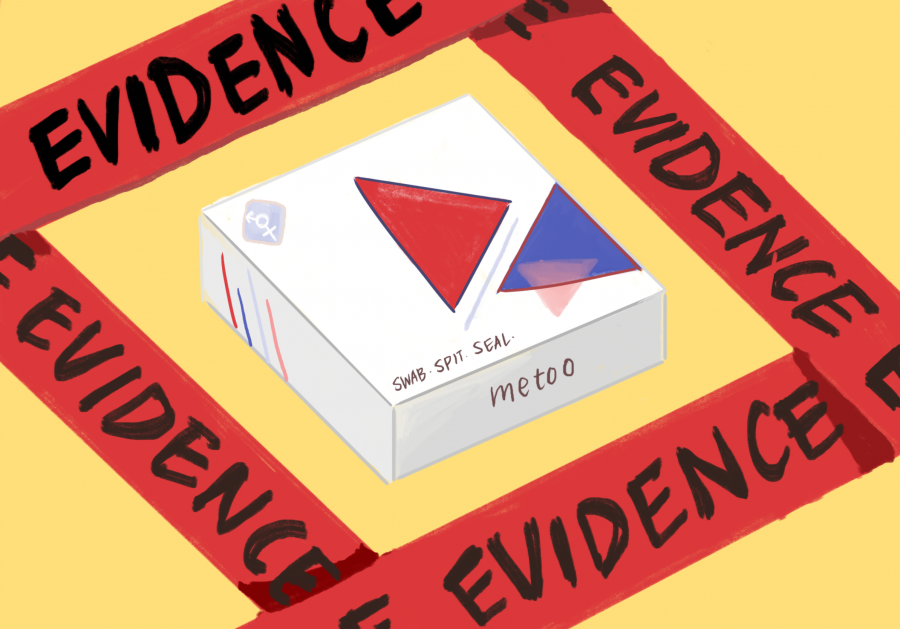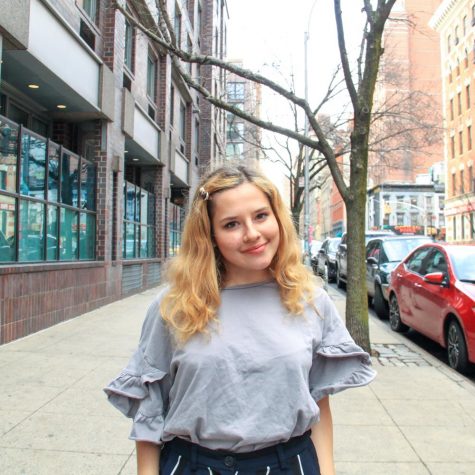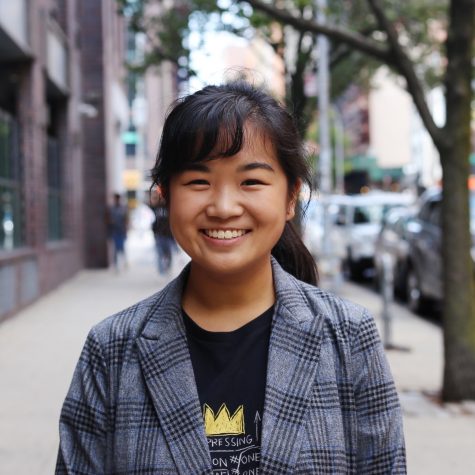TW: This article mentions sexual assault.
“Swab. Spit. Seal.” the MeToo Kit’s pastel-colored, minimalist packaging instructs users. This self-administered sexual assault evidence kit — whose office is in 370 Jay St., an NYU building — was taken off the market Tuesday following criticism of its legal legitimacy and commercialization of the #MeToo movement.
An at-home sexual assault evidence collection kit — or DIY rape kit — contains swabs for cheeks and genital areas, a clothing bag and a container for saliva to test for sexually transmitted infections and pregnancy and to preserve evidence. Recently, companies selling or planning to sell such kits have come under fire due to legal and medical professionals raising concerns over their admissibility in court.
The MeToo Kit and its competitor, Amazon-based PRESERVEkit, stopped selling and marketing their products after New York Attorney General Letitia James called on them to cease and desist the sale of their kits, stating that rape kits require official medical attention, CNN Health reported.
“I am deeply concerned about companies selling kits that deter individuals from seeking professional care and purport to collect evidence without knowing whether the evidence will be admissible in court,” James told CNN.
The MeToo Kit headquarters are located on the seventh floor of 370 Jay St. in Brooklyn, a building on the NYU Tandon School of Engineering campus. It was one among several start-ups in Tandon’s Data Future Incubator, a lab that provides tech support for early-stage businesses.
“Being selected by the staff of an incubator to be one of the start-ups in the incubator does not constitute an endorsement by the university,” NYU spokesperson John Beckman said in a statement to WSN. “This is a typical case in the sense that the start-up owners are not NYU personnel and the products and technology [are] not NYU intellectual property.”
The MeToo Kit was created last May by Madison Campbell, a 23-year-old sexual assault survivor who said that she wanted to help survivors process trauma before they seek help from law enforcement. Her kit and the PRESERVEkit differ from standard rape kits because they are self-administered and not performed by a trained medical official. In both cases, evidence must be collected within 72 hours of the sexual assault.
After James’ cease and desist order, the PRESERVEkit was unlisted from Amazon and the MeToo Kit website is devoid of all content besides a button that reads “stay notified” and a daunting statistic — “77 percent of individuals do not report their sexual assault.”
MeToo Kit had yet to sell a product when it was told to halt its business.
The company did not respond to multiple requests for comment. A seventh-floor front desk worker at 370 Jay St. said that the MeToo Kit team had been off the premises for about a week and was likely avoiding the press.
PRESERVEkit did not strip its website, although the purchasing function was removed. The page features a slideshow containing a letter written on Sept. 15 by founder Jane Mason, a retired FBI Special Agent.
The letter shows the same statistic as MeToo Kit’s website — that 77% of rapes go unreported. Mason went on to reference the case of Monica Lewinsky, in which semen stains on her dress were used as evidence in court a year later, as a way of challenging the claim that DIY kits are unusable.
“Are crime victim advocates, the state attorneys general and all others who have come out to fight against our product saying that a survivor has to be a Whitehouse intern with the DNA of a President of the United States before his or her evidence is admissible in court?” Mason wrote in the letter.
The final line of the letter states the company’s plans to return as soon as possible to “help the 77 percent.”
Samantha Skaller, the Campus Coordinator for the NYC Alliance Against Sexual Assault, said she is worried about the effect DIY kit usage could have on survivors.
“Having [survivors] go through a legal system in which evidence they thought would be admissible is no longer admissible is a way to retraumatize people who are already going through a lot of different types of trauma,” Skaller said.
In addition to concerns about court legitimacy, the MeToo Kit is under fire for commercializing the #MeToo movement, a widespread campaign against sexual harassment that gained traction over social media in October 2017 after sexual assault allegations against filmmaker Harvey Weinstein came to light.
In a statement to WSN, NYU Students for Sexual Respect co-presidents, CAS senior Tina Wang and Tisch senior Emma Levine, said they objected to the sale of MeToo kits.
“The #MeToo kits are profiting from extracting money from survivors under the guise of providing an opportunity to ‘comfortably’ administer a rape kit,” the statement reads. “The truth of the matter is, rape kits are administered for free at hospitals.”
Other companies, like makeup brand Hard Candy, have faced similar criticisms. After applying to trademark “#MeToo” last October, the company’s CEO, Jerome Falic, faced substantial backlash on social media from users who said the company’s aims were not genuine.
The controversy surrounding these kits comes during a time of rising campus sexual assaults. One in five women and one in 16 men are raped on college campuses annually, according to the National Sexual Violence Resource Center. 90% of these rapes go unreported.
A 2015 documentary on campus sexual assault, “The Hunting Ground,” detailed multiple accounts of students whose universities discouraged survivors from reporting in an attempt to maintain a public image, leading to pushes for reform across the country. Recently, reports of allegations against former Michigan State University physician Larry Nassar being dismissed by university administrators further highlight this issue.
Despite studies showing that only 2-10% of rape accusations are found to be false, less than 1% lead to jailtime for the accused.
“Survivors are forced through a criminal justice system that is harsh, traumatizing and throws out most of the cases brought to it,” Wang and Levine said.
NYU’s 2018 Annual Security and Safety report lists on-campus resources such as Mary Signor, the NYU Title IX coordinator and off-campus reporting channels in the form of rape crisis centers across the city. NYU’s Title IX Office also arranges direct assistance and accompanied hospital visits for sexual abuse survivors. The university also established “Sexual misconduct Prevention, Assistance, Counseling and Education” as another resource for victims of sexual assault.
The report recommends that victims obtain rape kits from official sexual assault centers or hospitals. Skaller said that while some students report to their Title IX coordinator, many will either immediately go to the police or not report at all.
If they do report the rape, victims can be connected to hospitals that can administer rape kits through both the Title IX office at NYU and police stations. In both cases, a rape kit administered by a professional is more likely to be admissible in court than a DIY kit.
“The decision to seek medical attention and gather any evidence will preserve the full range of options to seek resolution through NYU’s complaint processes or criminal action,” the report states.
Even if a rape kit is administered correctly, hundreds of thousands of women’s rape kits across the U.S. go untested for years, as reported in the Atlantic article “An Epidemic of Disbelief.”
In the article, writer Barbara Bradley Hagerty references a police warehouse in Detroit containing 11,341 tested rape kits that were never sent to labs for further processing. Some of these kits dated back 30 years.
This nationwide epidemic is referred to as rape kit backlog. Rape kits are backlogged when they have not been chemically analyzed within 30 days of evidence collection, according to End the Backlog, a non-profit organization dedicated to dealing with the issue. This problem has gained national attention, with 2020 Democratic presidential hopeful Kamala Harris proposing to donate $1 billion in order to reduce the 200,000 currently untested sexual assault evidence kits.
Whether or not the kits have been tested, James and others continue to assert that DIY rape kits do more harm than good for sexual assault survivors.
“Sexual assault is a real problem that demands a real response,” James said. “Proper medical attention and accurate evidence collection are of critical importance to supporting survivors.”
Correction, Sep. 24: A previous version of this article stated that rape kits can be administered through NYU’s Title IX Office or police departments. Rape kits are administered through hospitals, although both police and Title IX officers can work with victims to connect them to a hospital. The article has been updated to reflect the correction and WSN regrets the error.
A version of this article appeared in the Monday, Sept. 23, 2019 print edition. Email Lisa Cochran at [email protected].

























































































































































